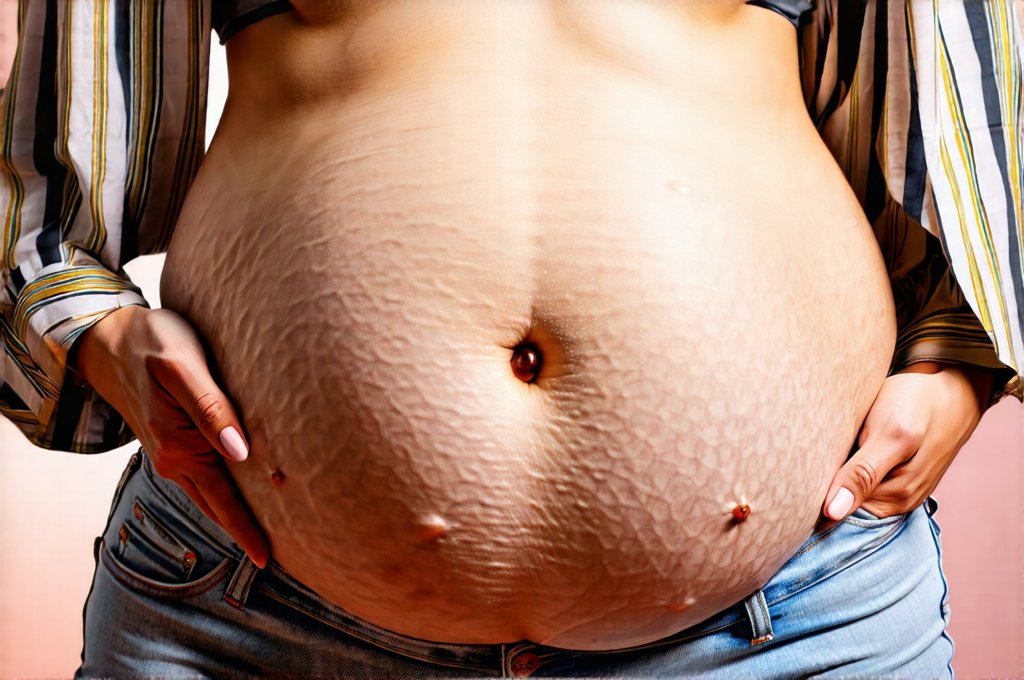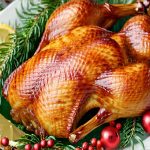The festive season, with its abundance of delicious food and social gatherings, is often a joyful time. However, for many, it can also be accompanied by an unwelcome guest: bloating. That uncomfortable feeling of fullness, tightness, and sometimes even pain, can quickly overshadow the celebratory mood. It’s a common experience, especially around holidays where dietary habits are disrupted and portion sizes tend to increase. Understanding why bloating happens during special occasions is the first step towards managing it effectively so you can truly enjoy yourself without discomfort. This isn’t about deprivation or avoiding all the treats; it’s about being proactive and making informed choices that support your digestive system amidst the indulgence.
Bloating isn’t necessarily a sign of something seriously wrong, but it is a signal from your body that something needs attention. Often, it stems from changes in routine – different foods, larger quantities, irregular mealtimes, increased stress, and even altered activity levels. These factors can all impact digestion and lead to gas production or fluid retention. The good news is that with some mindful planning and simple strategies, you can significantly reduce bloating and navigate holiday gatherings feeling comfortable and confident. This article will explore practical ways to minimize discomfort so you can savor the festivities without compromise. Understanding foods that cause gas is also important for planning ahead.
Understanding the Culprits: Why Bloating Happens on Special Occasions
Holiday meals are often centered around foods that are notorious for causing bloating in susceptible individuals. These include highly processed foods, rich sauces, sugary desserts, and carbonated beverages. The combination of fats, sugars, and sodium can slow down digestion and lead to gas formation. Beyond the food itself, how we eat plays a significant role. Rushing through meals without proper chewing increases the workload on your digestive system and makes it harder to break down food efficiently. Furthermore, stress – which is often heightened during the holidays due to travel, family dynamics, or gift-giving pressures – can directly impact digestion, leading to increased bloating.
A key factor contributing to holiday bloating is a shift in dietary fiber intake. Many people drastically increase their fiber consumption when attempting “healthy” holiday meals (think Brussels sprouts and beans), but without adequate hydration, this can actually worsen bloating. Fiber needs water to function properly; otherwise, it can ferment in the gut, producing gas. Similarly, artificial sweeteners found in diet drinks and sugar-free desserts are often poorly absorbed by the body, leading to fermentation and discomfort. Finally, food intolerances or sensitivities – even mild ones – can be exacerbated during holidays when we consume a wider variety of foods than usual. It’s crucial to identify potential triggers and adjust your choices accordingly. If you suspect certain foods trigger issues, consider what to avoid on grocery runs.
It’s important to remember that everyone reacts differently to foods. What causes bloating in one person may not affect another. Keeping a food diary leading up to the holiday season can help you pinpoint specific culprits for yourself, allowing you to make more informed decisions when faced with tempting treats. This self-awareness is powerful and allows you to proactively manage your digestive wellbeing during these potentially challenging times. It’s also useful to understand how to differentiate between bloating and weight gain, so you can accurately assess what’s going on with your body.
Preemptive Strategies: Preparing Your Gut Before the Festivities
Preparing your gut before a special occasion can significantly reduce bloating. Think of it as building a buffer against potential discomfort. One effective strategy is to focus on hydration in the days leading up to the event. Drinking plenty of water helps keep things moving through your digestive system and prevents constipation, which can contribute to bloating. Aim for at least eight glasses of water daily.
- Prioritize probiotic-rich foods like yogurt (if tolerated), kefir, or sauerkraut a few days beforehand. These beneficial bacteria support a healthy gut microbiome, improving digestion and reducing gas production.
- Consider incorporating gentle exercise into your routine. Physical activity stimulates bowel movements and helps relieve bloating. Even a brisk walk can make a difference.
Another crucial step is mindful portion control in the days leading up to the event. Avoid overeating or indulging in heavy meals that might overload your digestive system. This allows your gut to be in optimal condition when faced with holiday temptations. Finally, identify potential trigger foods and limit their consumption beforehand. If you know dairy causes bloating for example, reduce your intake a few days prior. Planning ahead is also helpful if you are traveling during the holidays.
Navigating the Meal: Smart Choices During the Celebration
When confronted with a feast, making smart choices is key. Start by assessing what’s available and prioritizing lighter options. Fill your plate with vegetables and lean protein before indulging in heavier dishes. This helps you feel fuller faster and prevents overeating. Avoid excessive amounts of sugary drinks, carbonated beverages, and artificial sweeteners – these are notorious bloating triggers. Opt for water, herbal tea, or sparkling water instead.
- Practice mindful eating: Slow down, chew your food thoroughly, and savor each bite. This aids digestion and reduces the amount of air you swallow.
- Be cautious with cruciferous vegetables (broccoli, cauliflower, cabbage). While healthy, they can produce significant gas in some individuals. If sensitive, consume them in smaller portions or choose alternatives.
Don’t feel obligated to try everything on offer. It’s perfectly acceptable to politely decline certain foods or request smaller portions. Focus on enjoying the company and conversation rather than feeling pressured to overindulge. Remember that a single treat won’t derail your health; it’s the consistent pattern of overeating that causes problems. You can also explore how to avoid boredom if you’re on a restrictive diet during this time.
Post-Meal Relief: Soothing Your Digestive System Afterward
Even with careful planning, some bloating is inevitable. Fortunately, there are ways to alleviate discomfort after a meal. Gentle movement, like a short walk, can help stimulate digestion and relieve gas buildup. Avoid lying down immediately after eating; this can worsen bloating. Ginger has natural anti-inflammatory properties and can aid digestion – consider sipping ginger tea or chewing on a small piece of fresh ginger.
- Peppermint tea is another excellent option for relieving bloating, as it helps relax the digestive muscles.
- Over-the-counter remedies like simethicone (Gas-X) can help break up gas bubbles in your stomach and intestines, providing temporary relief. However, these should not be relied upon as a long-term solution.
Finally, prioritize adequate hydration after the meal to support digestion. Avoid drinking large amounts of water at once; instead, sip on it throughout the evening. Remember that bloating is often temporary, and with a little self-care, you can minimize discomfort and enjoy the rest of your celebration. The key takeaway isn’t about restriction but about being mindful and proactive in supporting your digestive health during special occasions. If you are dealing with these issues regularly, handling digestive issues is important.


















